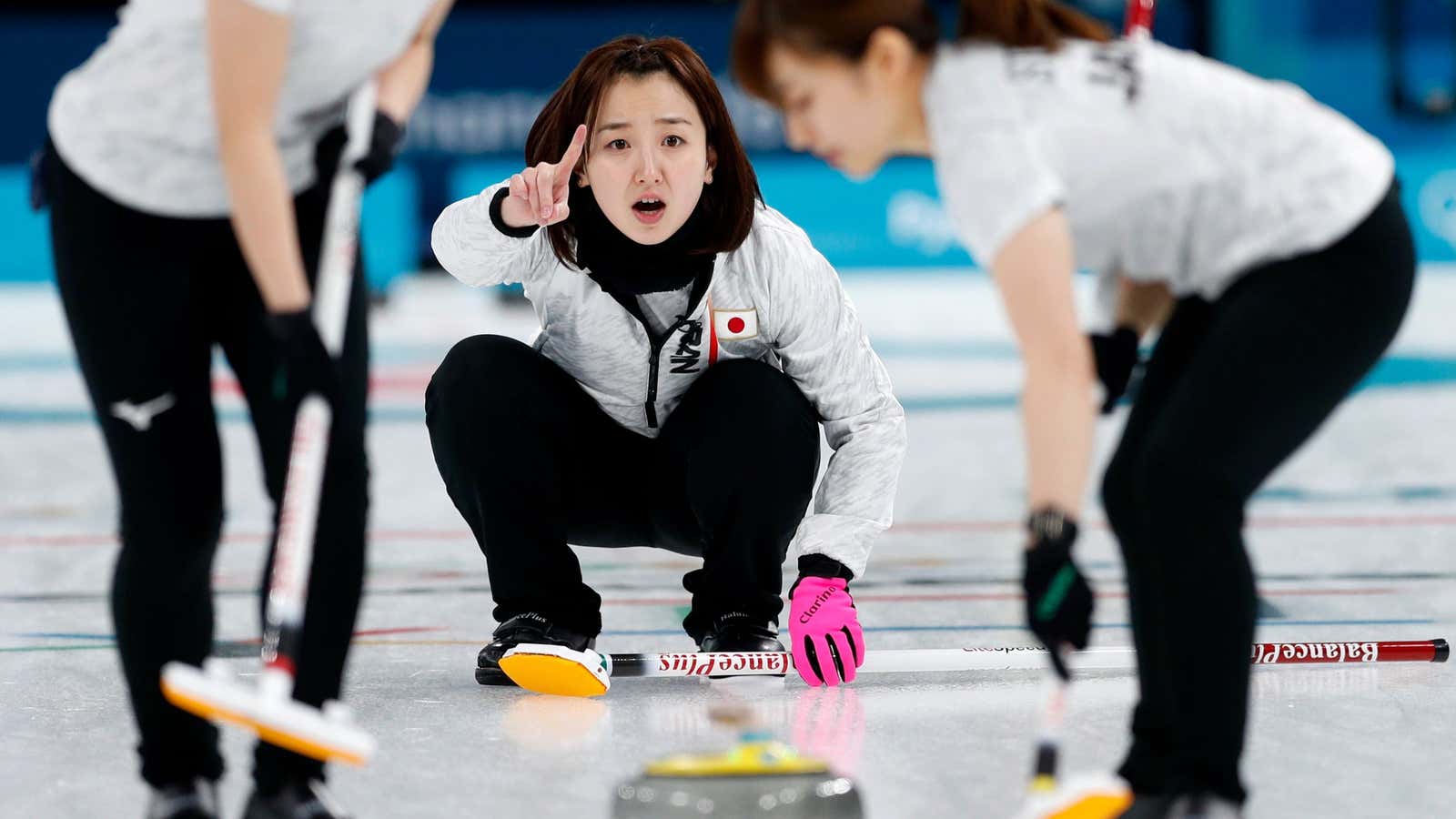A simple, tiny phrase uttered by the members of Japan’s Olympic women’s curling team was enough to capture the hearts of the country in 2018.
Sodane, which translates to “that’s right” or “I agree,” was chosen by Japanese publisher Jiyukokuminsha (link in Japanese) in its annual ranking of words that best summed up the zeitgeist of the year, published today (Dec. 3).
The phrase was frequently spoken by the members of the curling team, whose unlikely success created a legion of new curling fans in Japan and beyond. The Japanese women’s team won a bronze medal, with the silver medal going to South Korea, whose female curlers also became national sensations.
Jiyukokuminsha said that the women’s curling team brought a “feeling of warmth” to audiences in Japan, in an era where many people have felt exhausted and overwhelmed. Many were charmed by the athletes’ deferential use of the word sodane, uttered during moments of intense interactions and athleticism, with the Hokkaido accent, heard in its northern prefecture, an added novelty. The publisher added that the women’s interactions showed that it was possible to deliver success while being respectful of one another.
So popular was the curling team that they earned a second entry in the shortlist of 30 words: Mogumogu taimu refers to “snack time,” as fans closely watched what the team ate in their breaks, including cheesecake and politically sensitive strawberries (paywall).
The shortlist’s other contenders also included:
- Naomi-bushi: “Naomi’s words” refers to Naomi Osaka, the half Japanese, half Haitian tennis star who beat Serena Williams to win the US Open this year. While her success was celebrated in Japan, it also sparked a much-needed national conversation over race and identity in a country that remains extremely homogeneous and where mixed-race Japanese still face serious discrimination.
- #MeToo: The global campaign against sexual harassment also took hold in Japan this year, following allegations a female journalist made in late 2017 that she was raped two years earlier by a well-known TV journalist. Two government officials also resigned this year after they were accused of sexual harassment, but the progress of #MeToo in Japan has been relatively slow in a country with some of the starkest gender inequalities in the world.
- Akushitsu takkuru: The “dirty tackle” refers to one of the biggest sporting scandals in Japan this year, when a linebacker for Nihon University’s American football team made a violent hit on the quarterback from Kwansei Gakuin University. The linebacker later said that he was instructed by his coaches to make the tackle, opening up a discussion (paywall) over pawa-hara, or power harassment, by people in power over their subordinates.
- Kinniku wa uragiranai: “Muscles will never let you down” is a catchphrase from the host of national broadcaster NHK’s hit new workout program called Bodybuilding for Everyone. The program features three buff men performing various exercises, including a Swedish gardener who moved to Japan to become a citizen.
Last year’s winner was sontaku, a hitherto little-used and neutral term that summed up Japan’s political zeitgeist in 2017, as criticism over prime minister Shinzo Abe’s concentration of power mounted. The word refers to people who perform pre-emptive acts to ingratiate themselves to their superiors, and became popular last year in reference to a school scandal that implicated Abe and his wife.
Correction: An earlier version of this article incorrectly stated that South Korea won the gold for women’s curling at the Winter Olympics this year.
